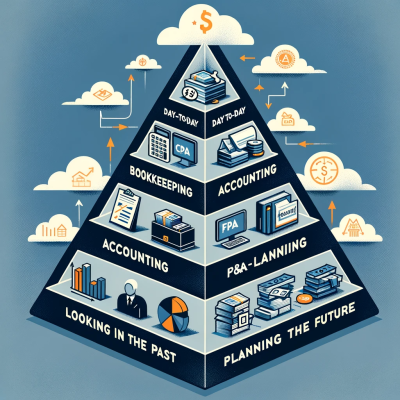eCommerce Accounting vs Bookkeeping and Financial Planning & Analysis

Introduction
E-commerce businesses thrive on effective financial management. Companies don’t want any surprises come tax time, and need to ensure they are operating effectively. Ensuring their profit is high, cash & inventory is flowing, and everything is compliant is critical. To do this, it requires an understanding of the differences between bookkeeping, accounting, and financial analysis to see the big picture.
These components, though distinct, are interconnected. Grasping their nuances is key, especially for Amazon sellers.
Understanding Bookkeeping
Bookkeeping is the foundation of financial management. It involves recording every transaction: sales, purchases, receipts, and payments.
For e-commerce, this means meticulous tracking of all platform transactions. Some softwares makes it easier to import eCommerce transactions or pull in bank statements, so finding a program that works for you is critical.
You should be doing this at least twice a month, and reconciling every account to the penny when your statements come out for maximum visibility.
You can do this yourself, or find a bookkeeper to handle this. Having a CPA (certified public accountant) do this is possible, but often expensive and overkill when a cheaper bookkeeper can do the same thing.
Without accurate bookkeeping, you are unable to see the health of your company so doing this correctly is vital.
Exploring Accounting
Accounting is more than bookkeeping. It’s about interpreting, classifying, and summarizing that financial data.
In e-commerce, accounting involves preparing financial statements and managing taxes. It offers a comprehensive view of your business’s financial health.
So once you enter your transactions, you can generate financial reports like a profit & loss, balance sheet, or other reports. Depending on your tool of choice, you can easily create reports, compare by dates, or group by different methods (marketplaces/ brands
Depending on the profit and entity of your business, you are likely liable for various tax payments. Talk to a CPA to determine the best action, and having accurate bookkeeping will make it super simple
Financial Analysis and Planning
Financial analysis and planning is the final step and goes beyond recording and simple interpreting of data. This strategic function involves budgeting, forecasting, and profitability analysis.
Bookkeeping is generally about the now, accounting looks in the past, and FP&A plans the future.
Again, depending on your software, it can make it automated or a hassle to plan out. Starting with reconciled bookkeeping, you can estimate by time period past sales, apply growth factors, and determine your course of action
Ensuring your inventory is in stock, but not overstocked, and you have the cash to pay for it is all part of FP&A and necessary to have an ongoing successful business.
Interconnectivity of the Three Fields
Bookkeeping, accounting, and financial analysis are interdependent. Accurate bookkeeping underpins reliable accounting, which is essential for effective financial planning. Without reliable bookkeeping, none of the other functions work, so getting that right is necessary.
In the fast-paced world of e-commerce, understanding their synergy is crucial for financial success.
The Role of Software and Services in Streamlining These Functions
Modern software solutions revolutionize these financial tasks. They simplify bookkeeping and accounting while providing valuable insights for financial planning.
Combined with expert services, such software becomes a powerful tool. It offers eCommerce sellers time savings, ease of use, and comprehensive financial insights.
Many sellers use QuickBooks and pair it with an integrator like A2X which although works okay for bookkeeping and accounting, it does not offer the eCommerce specific analysis and forecasting tools necessary for FP&A. This forces the seller to generate their own reports wasting time and accuracy, or pay for other services.
SellAnalytix was built to combine these three functions; day-to-day bookkeeping, interpretive accounting & easy ability to pay taxes, and the advanced forecasting to plan the future based on past data and expected growth
